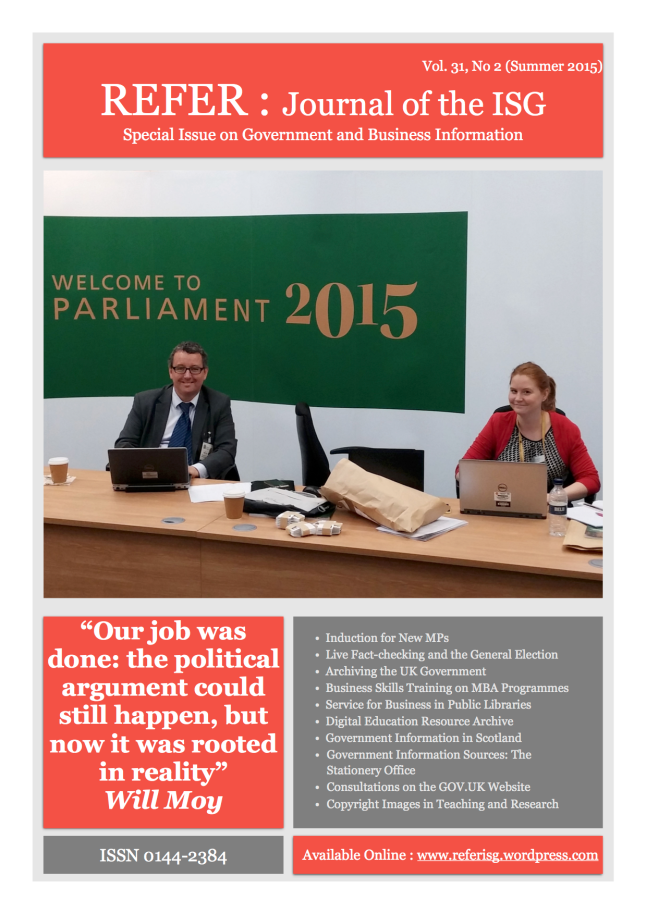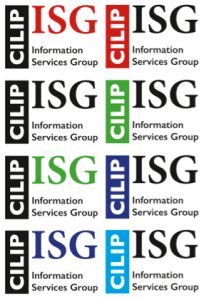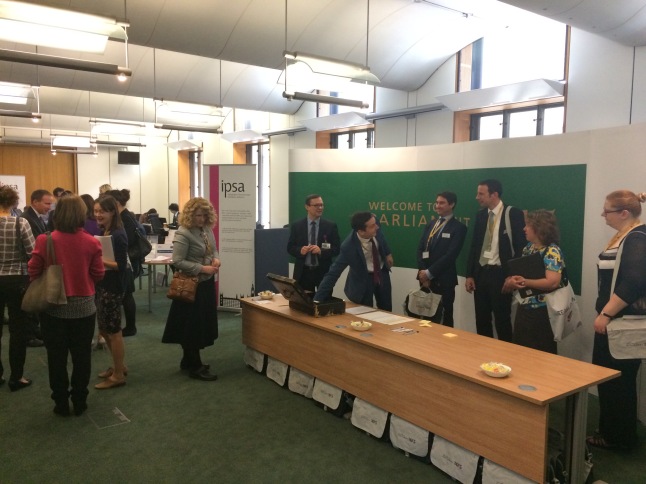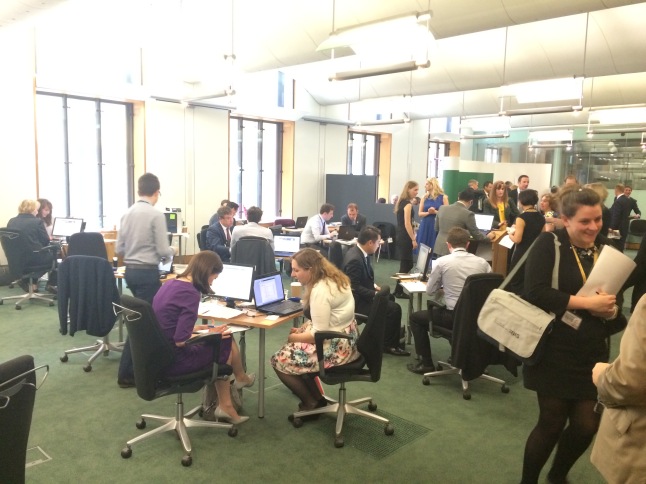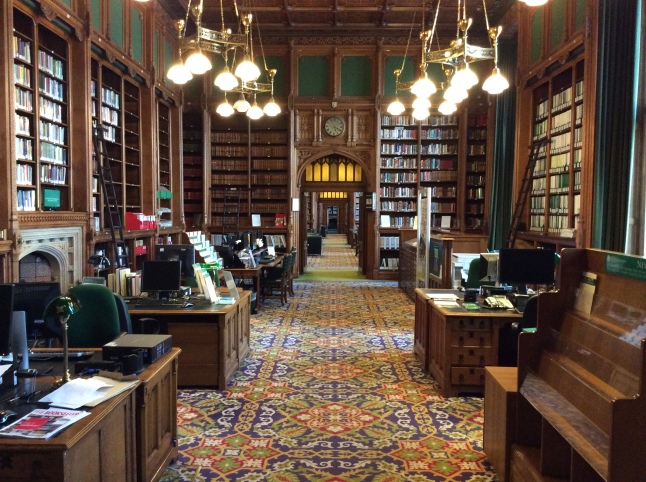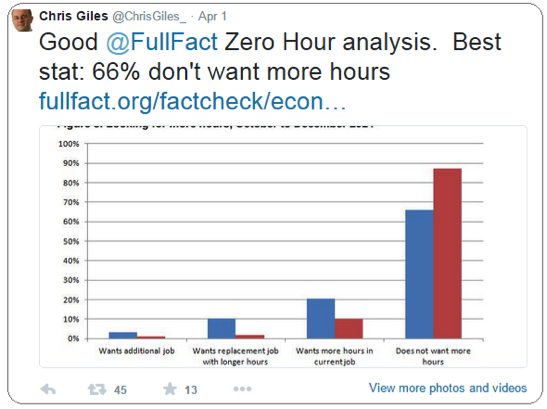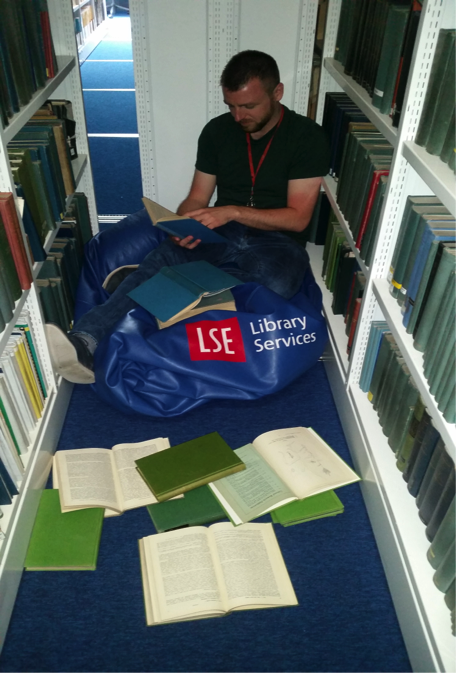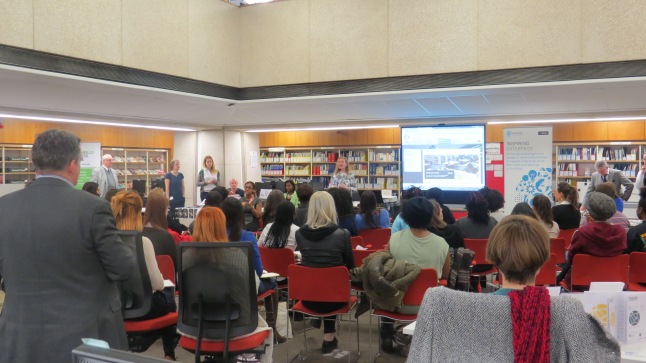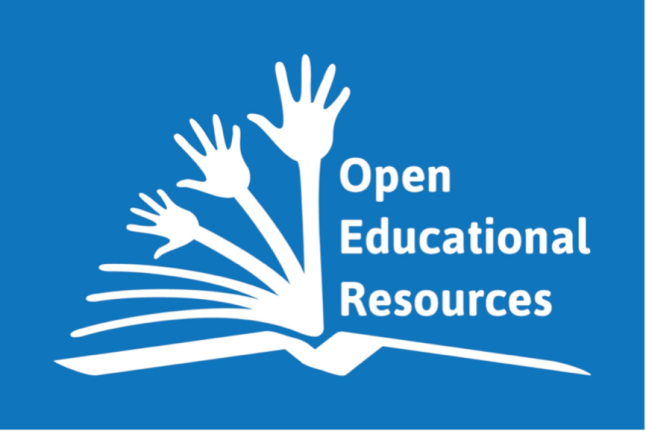Chris Flegg,
Bodleian Business Librarian, Said Business School, University of Oxford

Academic journals, magazines and trade publications; economic, market and financial flow data; global and regional statistics; earnings estimates; industry and analysts reports; country and business analyses and forecasts; political risk services; and up to date corporate news – compared to other subject fields, the array and quality of the high-cost, high-value information resources that knowledgeable and skilled business school librarians have artfully amassed for the benefit of their users is nothing short of staggering.
But as valuable and extraordinary as these collections might be, they will, most likely, fall victim to a long-standing paradox of business school library information provision: that, for the most part, the MBAs, who sit Golden Buddha-like at the epicentre of the average business school, cannot, and will not, derive from those resources the level of benefit that is commensurate with their inherent value.
This is because most of the world’s MBA programmes appear to be predicated on two things: a crammed teaching schedule which aims to squeeze the maximum quality content into a short space of time, thus validating the eye-watering cost of an MBA programme, and the very high calibre of the teaching faculty who, quite rightly, equate their academic credentials with their strictures on how their subject will be taught – including what readings will shape and map the optimal territory for exploration, discussion and consumption.
If this then begets – as it usually does – a tightly scripted learning experience, the time-pressured MBA will gladly acquiesce by keeping well within the prescribed texts, with the most predictable and monotonous request being for librarians to devise ever faster and slicker ways of leading students directly to the full-text of the stipulated readings (two URL clicks on a reading list being just one click too many). Within this controlled learning environment, the role of the business school librarian can feel reduced to that of water bottle dispenser running trackside of elite athletes competing in an Olympic marathon. Over my years in business school libraries, the bizarrely earnest requests for us to somehow “make this process easier”, has often made me ponder on what trick we are missing here: some clever way of injecting information directly into the effort-adverse brain could surely be the next hot Silicon Valley wonder.
For those working outside the business school library environment, this scenario may seem far-fetched, but it is indeed quite the norm for highly conscientious, dedicated and otherwise sane and rational business school academics to expend inordinate time and effort trimming their reading lists in order not to overwhelm students who would – naturally – regard a long reading list as a “waste of time and effort” and likely to create antagonism with too much material to be processed and absorbed: this challenge being at least equal to the fashioning of a learning platform in such a way as to protect students from straying from the prescribed path, lest they wander, through a gate left carelessly and dangerously ajar, into unchartered and un-sanctioned territory. And for their part, most MBA students would rather be asked to clutch a red-hot poker than move away from the prescribed texts, an act described succinctly by one ex-MBA as “academic suicide”.
Of course there are reasons why this is so, and why it has been this way for decades: for the schools, for the faculty and for the students, it works. But as often happens in situations that are tightly controlled, it works at a cost. Talk to careers centre managers and you will note not a small whiff of despondency: despondency at MBAs being little informed of the market place, little informed about their target industries and employers, and little informed about how to impress at interviews, while librarians bemoan the end of year “I wish I had known before that you had…”.
So where within this constricted information environment can the business school librarian who feels it his or her duty to impart business information finding skills deliver on this key role? Well, most will continue to offer training, even if sporadically, and even if – despite expressions of interest – the actuality typically is of uninspiring rates of attendance on training days. And most will accept training opportunities anywhere they can, which most often will be in the unthreatening and non-disruptive areas for which faculty are prepared to hand over territory: typically, plagiarism, referencing or social media tools, about which Generation X, Y and Z, are already well versed and the new Millennials don’t even consider an area of inquiry.
It was with this sober view of business school life that in 2014 the library team sat down to thrash out how it might “do” induction for the incoming MBA cohort, in a way that was neither boring nor a seemingly waste of effort. Having persuaded the programme director that there was something amiss when our MBAs ended their year unable to use even the library catalogue, we were allowed three 1 ½ hour sessions in the School’s intensive, high-profile and much publicised, 3-week MBA induction programme, in which to tell our story in whatever way we chose.
It was time for us to champion what we believed in, which we determined was as follows:
- Our resources are not just phenomenal – they are of real and outstanding value and relevance to our MBAs.
- The library’s value proposition is robust and valid notwithstanding the grip on MBA student time exerted by the prescribed readings regime.
- Our MBAs are clever enough to master the mechanics of how to use most of our information sources without us having to train them.
- What they don’t know is what we have and where to find it.
- But for the MBAs to invest their attention for 1 ½ hours and play ball with the above, we had to find their “sweet spot” – that part of their hearts and minds that said “Yes I want to know that” (and you librarians are not boring).
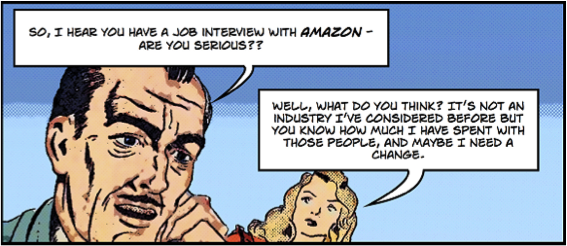
From these basic assumptions we determined that a) we shouldn’t and wouldn’t bore them with one way conversation; b) we would make them want to find the information because that information related to their “sweet spot”; c) we would fire up their energy levels through their natural competitiveness; and d) we would trust them to rise to the challenge of being left to their own information-seeking devices.
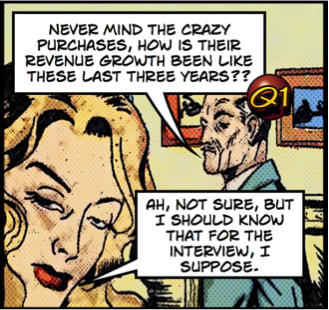
Of course the “sweet spot” here was key, and, based on the motivation for the vast investment of time and money these students make to enhance or advance their careers, we devised a set of career enhancement scenarios, wrapped into a comic strip story, which contained a fact finding competition, ending with a prize of a dinner at one of Oxford’s best restaurants.
The evolution of the comic strip and the multiple job interview scenarios involved considerable buy-in from the team and their active engagement with the concept, with diligent follow-through to make it all come together and work as we wished: a lot of clever work by some outstanding staff included researching 7 company profiles, scripting the text, crafting and building the comic strip images, and working out the logistics for running an event involving 237 students in groups of 4-5 students sent off in all directions to work independently through the questions.
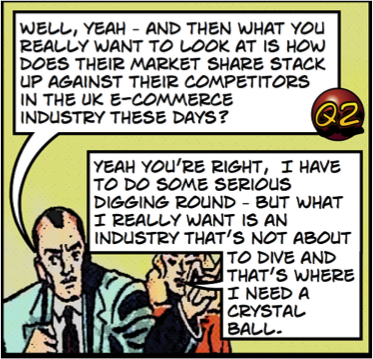
What we learned is that in the time allocated, we didn’t need to speak for more than 5 minutes to explain the deal, give out the paperwork, and point them to the website and information guides. We learned also that students love competitions and will, when in competition mode, take the questions we set to a whole new level we had not required or anticipated, digging out far more detail than we needed to merely establish that they had uncovered the right sources: clearly a case of “build it and they will not only come, but they will commence to build another floor, a pool and some outhouses to boot”.
But what of the outcomes, and did they produce the results we hoped for? Although we have yet to collect the hard data, we can see from the use of the resources and the type of questions that have since come our way – questions that would only come up if acquainted with the databases – that this year’s cohort is comfortable and fluent with our resources. Further, the careers department staff report that, unlike past years, they have not had a single question about how and where to find financial, company, industry or other information when preparing for job interviews – a first for this school. Instead they now appear to be aware that the riches come via the library, and that they are riches indeed.
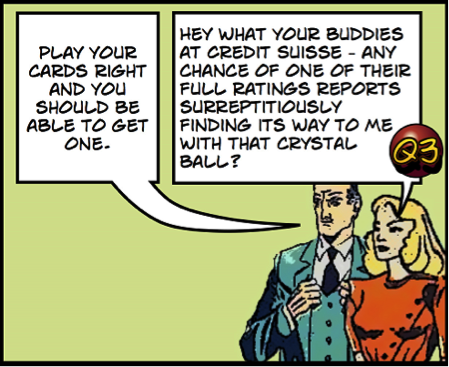
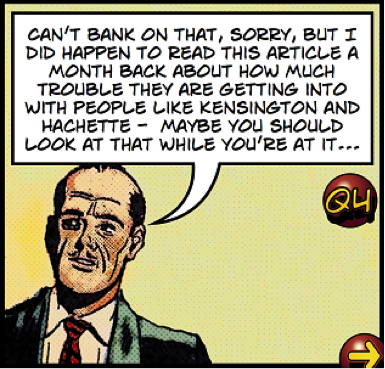
Most importantly, we have learned that if we trust in our ability to provide the information tools that can enhance and enrich the way a business education programme is experienced, and if we trust our students to recognise the intrinsic value of our resources when offered, we don’t need to confine our role to water dispenser in someone else’s race – we can support the programmes in the way our faculty and administrators want, but also more powerfully in ways they are not able to envisage: with our convictions, our obstinacy, our cleverness and our experience.

The i-Challenge team comprised of Andrew Kernot who researched the companies, John Pilbeam who produced the artwork and Kornelia O’Leary who worked out the logistics – I am indebted to their energy, their enthusiasm and their outstanding skills in turning the concept into an admirable reality.
Images modified from ‘ANC Exposed: Cases in the Crusade Against Crime’, Vol. 1 No. 9
http://digitalcomicmuseum.com/preview/index.php?did=23345&page=1
(Copyright free, public domain)
‘the toast’, by johnny_automatic
https://openclipart.org/detail/123133/the-toast
(Creative Commons License (CC0 1.0 Universal, Public Domain Dedication): http://creativecommons.org/publicdomain/zero/1.0/)
Refer 31 (2) Summer 2015
